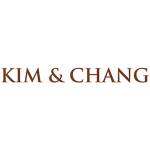One of the key themes in the South Korean legal landscape today is the strengthening of minority shareholder protection measures. Notably, through recent amendments to the Commercial Code, directors are now obligated not only to fulfil their fiduciary duty to the company but also to the shareholders, thereby enhancing minority shareholder protections in conflict-of-interest transactions between controlling shareholders and minority shareholders. Policymakers are considering a mandatory tender offer rule as one such measure to protect minority shareholders.
This article discusses the development of such a mandatory tender offer rule in Korea, provides an explanation of the proposed rule under discussion, and examines legislative measures to complement the introduction of the rule.
Discussions on the introduction of a mandatory tender offer rule
In the past, tender offers were required for acquiring controlling shares of listed companies in Korea. Specifically, the former Securities Exchange Act mandated that when an acquirer obtained a certain number of shares of a listed company to obtain management control, it was required to make a public tender offer to other shareholders besides the respective controlling shareholder. This was intended to provide an opportunity for minority shareholders to sell their shares and benefit from the control premium gained through such disposal.
However, amid the International Monetary Fund foreign exchange crisis and efforts to attract foreign investment, the Securities Exchange Act was amended on February 24 1998, abolishing the mandatory tender offer rule. Since then, only the controlling shareholders have had access to the control premium when a change of control occurs. However, there have been criticisms that minority protections should be taken into account for a balanced approach. In light of such discussions, a mandatory tender offer rule has re-emerged as a means to protect minority shareholders during listed company M&A transactions since the inauguration of the Yoon Suk Yeol administration in 2022.
The mandatory tender offer proposal announced by the Financial Services Commission under the Yoon administration stipulated that “if an acquirer intends to become the largest shareholder by acquiring 25% or more of the shares of a listed company regulated under the Financial Investment Services and Capital Market Act [FSCMA], they must purchase at least 50% plus one share of the shares at the same price paid to the controlling shareholder”.
According to this proposal, the acquirer is obligated to purchase a total of 50% plus one share or more, with priority given to purchasing shares held by the largest shareholder. Thus, if the largest shareholder already holds 50% plus one share or more and is selling those shares, the mandatory tender offer obligation does not apply.
For example, if 60% of the shares are tendered following the acquirer’s acquisition of 30% plus one share from the largest shareholder, it is permissible to acquire only 20% by proportionately dividing 60% into a third (i.e., 50% plus one share in total). If the acquirer violates the mandatory tender offer requirement, sanctions such as a restriction on voting rights, a disposition order, administrative measures, or criminal penalties can be imposed. Given the significance of this major shift, a certain grace period is expected to be put in place for market participants following the passing of the amendment.
After the proposal was made, however, the Democratic Party (currently the ruling party) maintained that the mandatory purchase quantity should be 100%, not 50% plus one share. And following the impeachment proceedings against President Yoon, further discussions were suspended prior to the election of a new president. After the election of President Lee Jae Myung in June 2025, the debate on the mandatory tender offer rule resumed as part of minority shareholder protection measures.
Mandatory purchase quantity: 50% plus one share v 100%
One key debate is whether the acquirer should be required to make an offer for all the outstanding shares (100%) or only a majority stake (at least 50% plus one share).
Looking at overseas legislative precedents, in the UK, when an investor acquires more than 30% of a listed company’s shares, they must make a tender offer to all shareholders at the highest price paid by the investor within the 12 months prior to the public announcement of the tender offer. In the EU, when acquiring a certain amount of shares in a listed company, the acquirer must make a tender offer at the highest price paid within a period defined by each country, ranging from 6 to 12 months before the tender offer. In Japan, if the acquirer’s shareholding exceeds two-thirds of the total issued shares after the purchase, the acquirer is obligated to make a tender offer for all shares. In Delaware, according to landmark cases such as Revlon and Unocal, the board of directors has a duty to approve a sale to a bidder that offers the highest price to all shareholders, making it practically difficult to carry out transactions that acquire shares only from certain shareholders without making a tender offer.
Considering these overseas legislative examples, there is a rational basis for the argument that mandatory tender offers for 100% of the shares in question should also be required in Korea.
However, since Korea does not have a mandatory tender offer rule in place, and acquisitions of shares from controlling shareholders have been achievable through private deals, there are significant concerns that the sudden introduction of a mandatory tender offer rule requiring 100% share acquisition might substantially hamper M&A activities involving listed companies.
As one illustration, the total market capitalisation of all the listed companies in the KOSPI market was approximately KRW 2,632 trillion in July 2025, with 850 listed companies. In the case of the KOSDAQ market, the total market capitalisation of all listed companies was about KRW 426 trillion, with 1,791 listed companies. That is, the average market capitalisation per company in the KOSPI market was approximately KRW 3 trillion, and even when including KOSDAQ-listed companies, the average market capitalisation of all companies was about KRW 1.2 trillion.
It is not easy to find an acquirer with such financial capability. Taking into account such market contraction effects, a reasonable approach would be to amend the regulations initially to require mandatory tender offers for at least 50% plus one share. A phased approach starting at that level may be more practical, while a statutory review could later evaluate whether to move towards a 100% requirement.
Need for additional measures following the introduction of the rule
The introduction of the mandatory tender offer rule would indeed be a positive factor from the perspective of minority shareholder protection. However, considering the potential contraction effects on the M&A market resulting from the implementation of the rule, it is advisable to pursue additional legislative measures concurrently.
For example, under the current FSCMA, it is not possible to make the fulfilment of all the necessary government approvals for share acquisition a precondition for conducting a tender offer. Therefore, even if the tender offer period ends without receiving a merger clearance or other applicable government approvals, the acquirer must still purchase the shares tendered.
Although such cases have not occurred to date, if a merger approval is ultimately denied, an unreasonable situation may arise where shares prohibited from being acquired under competition law must nevertheless be purchased, according to capital market regulations. To prevent such loopholes, it is necessary to actively consider amending the law to specify that government approval should be completed as a prior condition for a tender offer.
Secondly, if a tender offeror secures financing under the assumption of acquiring 100% of the shares but ends up obtaining significantly fewer shares, it could result in an unreasonable burden of considerable financing costs. This could have a chilling effect that deters tender offer attempts. To address this issue, a mechanism could be introduced:
To allow compulsory acquisition of up to 100% once a minimum quantity of shares is secured (noting that the voluntary delisting threshold is currently 95%, and the squeeze-out threshold under the Commercial Code is also 95%, making it practically challenging to acquire 100%); or
To reduce financing costs associated with tender offers by allowing the tender offer to proceed without the immediate need to deposit funds or draw loans.
As an alternative, other squeeze-out measures such as a cash-settled comprehensive share swap or a cash-settled merger can be considered. In 2023, the Korean Supreme Court ruled that a cash-settled comprehensive share swap is not in violation of the Korean Commercial Code. Since then, there have been several cash-settled comprehensive share swap cases in Korea based on this precedent. However, after the amendment of the code in July 2025, there is uncertainty as to whether cash-settled corporate actions may be allowed under the amended Korean Commercial Code.
In addition, if a mandatory tender offer rule is introduced, to facilitate minority shareholders’ participation in a tender offer, an amendment of the tax regime shall be considered. Currently, if a minority individual shareholder sells their shares to the tenderer through a tender offer, it is recognised as an off-market transaction, and capital gains tax, in addition to securities transaction tax, is imposed. Therefore, individuals tend to prefer selling their shares on the market at a price slightly lower than the tender offer price, rather than responding to the tender offer itself. Institutions such as securities firms, which are not subject to capital gains tax, take advantage of this by accumulating individual shares for arbitrage purposes.
As a result, in certain cases, the success of the tender offer is determined not by the intentions of minority shareholders but by those of institutional investors, causing a distortion in decision-making. In this case, minority shareholders are experiencing losses in the process where institutional investors profit through arbitrage trading. To prevent such issues, improvements in related tax systems and regulations may be necessary.
Key takeaways
Recently, there have been transactions in the market where the largest shareholders of listed companies conduct tender offers to purchase shares and then proceed to delist the company through cash-settled comprehensive stock swaps or similar methods, thereby acquiring 100% ownership. This method has become the norm for take-private transactions in Korea. However, with the recent introduction of the fiduciary duty to shareholders under the Commercial Code and discussions on the mandatory tender offer rule, it is now necessary to reconsider the legal feasibility of such take-private transactions.
The decision for a company to go public, as well as for a listed company to delist, is a natural action based on the management’s business judgement. Hopefully, the introduction of a mandatory tender offer rule will provide improvements that protect minority shareholders without undermining corporate autonomy, thereby advancing Korea’s tender offer rule to a higher level.




